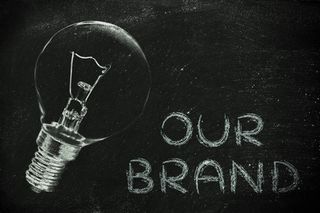How good is your brand? How secure is it? Who are your best brand ambassadors?
Those are some of the questions I found myself asking this week after coming across an article in Chief Executive Magazine entitled, "How to turn your employees into your best brand ambassadors." My instinctive response was that this should not be new to any CEO worth his salt. After all, surely you need employees who believe in your brand, in order to deliver a customer experience that turns customers into raving fans. But, perhaps it is a subject that requires a refresher.
If my instinct is right, and making your people brand ambassadors isn’t already core to everything you do, you have a problem. If your people are not your best brand ambassadors, your brand will definitely not be all it should be. Certainly this research from my friend Alexander Kjerulf suggests that may be the case. So, now ask yourself just how good your brand is. This also makes it unlikely to be as secure as you might like to think.
Perhaps you are already asking yourself these questions anyway. Certainly the emissions scandal at Volkswagen, which proves the old adage that it takes years to build a reputation (or a brand) and only moments to destroy it, should have already got you thinking. All the signs suggest that this turn of events has taken that company completely by surprise. If this is truly the case, could anything similar happen in your organisation?
The most frightening thing about the Volkswagen example is how few people could have been involved in relation to the consequences. Of course that is true of any crisis. You only have to think back to BP and the Deep Horizons disaster to see what damage the action or inaction of a handful of people can wreak. And, as a leader, you are responsible for safeguarding against that.
As you would expect, the Chief Executive article gives you some good tips for making your people your best brand ambassadors. Yet, despite this, it does you few favours. That is because it is underpinned by that age-old, ingrained thinking that your people are there to do what you tell them to. And, as long as that philosophy shapes your thinking, it shapes your culture, with the result your people become focused on outputs rather than outcomes.
Making your people brand ambassadors requires reversing this and focus on outcomes rather than outputs. In order to achieve this you need to make your people brand ambassadors for themselves. In other words, you have to close the divide between individual and organisation. The natural way to do this is to give your people a stake in the outcomes. And there is no better way to do this than through universal employee ownership that results in everyone in the organisation pulling together as a single entity. People need to feel appreciated and, by giving them some skin in the game, you can build this into everything they do, so that it is not an extraneous management process, but an integral part of the organisational culture.
If you like the idea, then you will like my ‘Every Individual Matters’ model which equips you to do just that.
_____________________________________________________________________________
Contact me today for a free 30 minute conversation about how my ‘Every Individual Matters’ model can help you create an organisational culture that embraces change and transforms – and sustains – organisational performance.
_____________________________________________________________________________
Bay is the founder and director of Zealise, and the creator of the ‘Every Individual Matters’ organisational culture model that helps transform organisational performance and bottom-line results. Bay is also the author of several books, including “Lean Organisations Need FAT People” and “The 7 Deadly Toxins of Employee Engagement.”

